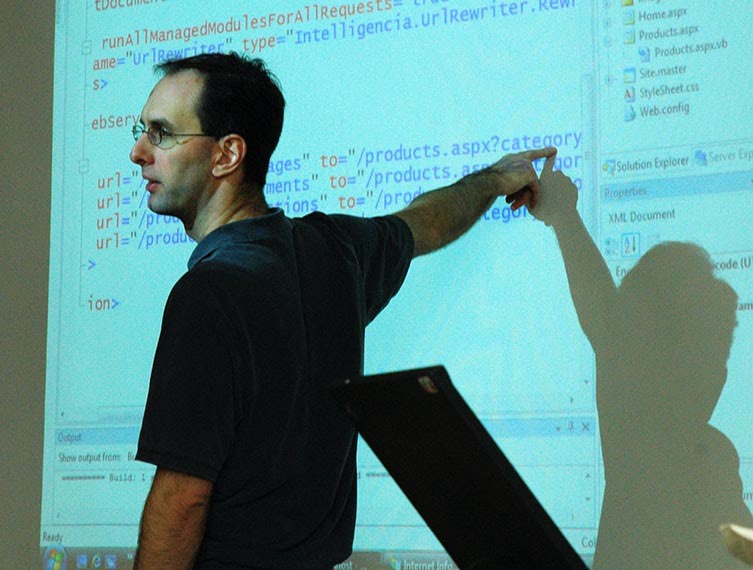Teachers are still working amongst the longest hours in Europe

Employers in the education sector have limited awareness of their staff’s work-life balance, according to new research from recruiting experts, Hays Education Training.
- Nearly half (46%) of education staff report their work-life balance as being poor or very poor, although only 26% of employers are aware of this
- Over a quarter (26%) say they are considering leaving the profession due to poor work-life balance
- Those who have worked in education for 1-3 years reported worse work-life balance (64% rated poor or very poor) than those with 4-7 years of experience (39% rated poor or very poor)
- Nearly half (45%) are working more than 50 hours a week, with 32% working over 56 hours
The Hays Wellbeing in Education Report, based on a survey of 780 respondents, found that nearly half (46%) of employees report their work-life balance as poor or very poor. However, only about a quarter (26%) of leadership believe that their staff are suffering from a poor work-life balance.
This could have a detrimental effect on staff numbers as over a quarter (27%) say they are considering leaving the profession due to poor work-life balance.
Younger teachers in secondary struggling the most
COVID-19 has had an impact on work-life balance as nearly two in five (37%) rated theirs as good or very good prior to the pandemic. However, this has fallen to just a quarter (25%).
This is particularly pertinent among staff newer to the profession, as those who have worked in education for 1-3 years reported worse work-life balance (64% rated as poor or very poor) than those with 4-7 years of experience (39% rated as poor or very poor). Just over half (52%) of those who have worked in the profession for 8 years or more gave their work-life balance this rating.
There is also a disparity across professionals in different phases of education, as 65% working in secondary schools rated their work-life balance as poor or very poor compared to 58% in primary schools.
Working hours are being stretched – and not monitored by employers
Long working hours are taking their toll on work-life balance as more than three quarters (76%) say they frequently work evenings and weekends and two thirds 66% frequently work during the holidays. 42% say they don’t have time to spend with their family and friends.
Nearly half (45%) report that they are working more than 50 hours a week, with 32% working over 56 hours. Over two thirds (69%) say they are working increased hours as a direct result of Covid-19.
Currently, only 10% of employers actively monitor their staff’s workload. Nearly half (49%) say they do not, and over a quarter are unsure whether this is the case (26%).
Paul Matthias, National Director of Hays Education, comments on the research:
“Changes to teaching caused by the virus has led to many in the profession working overtime in order to ensure that pupils are adequately supported. However, our research highlights that employers perceive the work-life balance of their teams to be better than it truly is.
Although employers are undoubtably working longer hours themselves, they must take a proactive approach to improving employees’ work-life balance if they are to retain teaching talent. Increased awareness of staff’s working hours is an important first step. But beyond this, make allowances wherever possible to give staff a break from work and look at what wellbeing training and resources you can provide to empower staff to manage their own work-life balance.”
 Commenting on the UCL paper Teacher workload and well-being. New international evidence from the OECD TALIS study, published today by the Nuffield Foundation, Dr Mary Bousted, Joint General Secretary of the National Education Union, said:
Commenting on the UCL paper Teacher workload and well-being. New international evidence from the OECD TALIS study, published today by the Nuffield Foundation, Dr Mary Bousted, Joint General Secretary of the National Education Union, said:
“Teachers are still working amongst the longest hours in Europe, and this is clearly linked to heavy workload of lesson preparation and marking, resulting in poor wellbeing rates.
“As this report shows, it is not the core work which teachers find stressful but the piling on to the working day of a set of accountability requirements that exist solely to please Government and Ofsted and offer little educational value. They do however drive high stress and poor wellbeing levels in teachers.
“High workload also leads to retention problems in the workforce, which this Government has consistently failed to avert. The latest threat of a pay cap in this week’s Spending Review adds insult to injury.
“Since the data used by the UCL researchers was collected, we have entered a worldwide pandemic in which teachers are working exceptionally hard with no extra time or resources, constantly putting themselves at risk and making changes to practice to provide continuity of education for all.
“The Government must recognise the exceptional contribution of the teaching profession and show respect and trust by eliminating needless inspections this academic year and recognise hard work by not imposing a real-terms pay cut.”

Responses